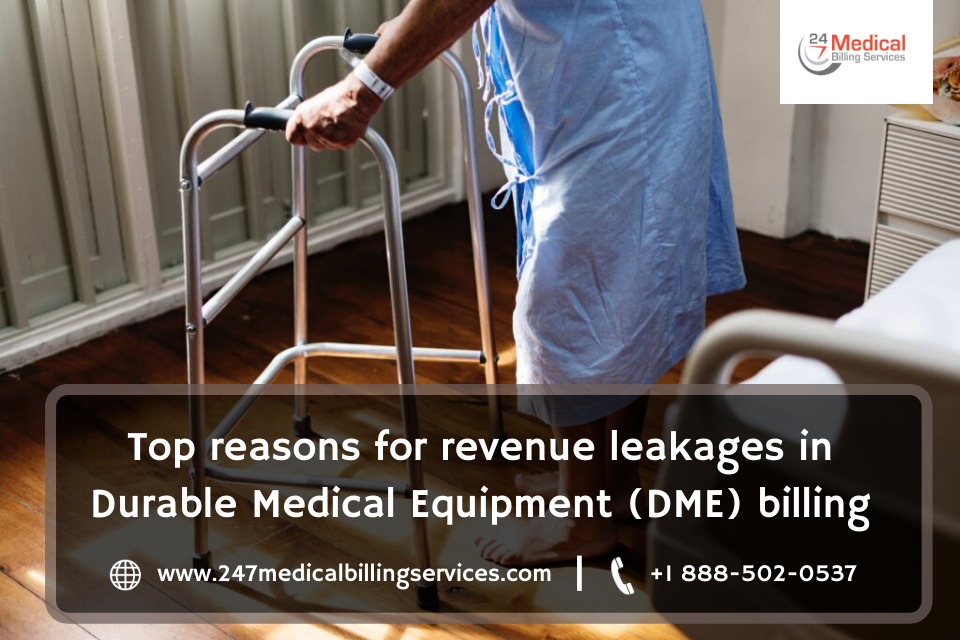Top Reasons for Revenue Leakages in Durable Medical Equipment (DME) Billing
Revenue leakages are a major concern in the healthcare industry. They are the difference in the claimed amount that healthcare providers are entitled to receive versus the amount of the reimbursement they actually receive. This phenomenon is especially common in the Durable Medical Equipment (DME) billing & coding industry because of the inherent cumbersome nature of DME billing.
- As per the Harvard Business Review, the top hospitals have lost hundreds of millions of dollars of income due to revenue leakages.
- As per American Hospital Association, all kinds of U.S. hospitals reported approximately $620 billion in uncompensated care costs since 2000.
 DME Billing Services
DME Billing Services
Top reasons why revenue leakages happen in DME billing and coding:
- Denial of claims: 20% of all revenue loss is due to denial of claims. Claims can majorly be denied if:
-
-
- Demographic Information of the patient is incomplete.
- Information is missing or invalid.
- Medical Necessity of DME usage is not clearly mentioned.
- CPT code, Modifier, PIN, or NPI is incorrect or missing.
- Duplicate claim or service is found.
-
- Inaccurate codes: Another common reason for revenue leakage is incorrect coding of accessories or equipment. Only when the DME biller identifies the right HCPCS level II codes and sends over the claim with authorization paperwork, the insurance company will pay the claim.
- Non-compliance: All the guidelines laid down by the Health Insurance Portability and Accountability Act (HIPAA) and the Office of the Inspector General (OIG) must be followed to the last bit in order to prevent complete rejection of your claims and thereby leakages in revenue.
- Lack of real-time monitoring: There’s no substitute to correct and real-time data. If that’s not available and there are discrepancies in your data, be sure of major revenue leakages. Why? Because without real-time data, decisions will not be backed up by accurate data. For example, if the insurance policy does not cover a specific treatment, this can be communicated to the patient and the provider beforehand so that there are no issues in the DME billing.
- Incorrect data: Inaccurate data entry in the database can give rise to mismanagement of funds and thereby revenue leakage. Until the data is meticulously collected and analyzed by experts, error-free billing is a distant dream.
- Failure to Follow-up: Failure to follow-up regularly can sometimes lead to non-payment of claims. If there’s a delay or the claims are outrightly rejected, DME billers need to follow up or resubmit the claims to avoid revenue leakage.
- Lack of expert guidance: By now you know that DME billing is an exhaustive process and must not be handled without expert guidance. Revenue leakages mainly happen when non-professionals venture into it and do not adopt DME billing outsourcing. Billing professionals can help you avoid errors, identify loopholes, get payments on time, manage denials and rejections of claims, and streamline the entire billing process so that you receive the payments you deserve.
The first step to avoid all forms of revenue leakage in DME billing and coding is to identify the loopholes. By giving the process in the hands of experts, you ensure that you’re focusing on what you’re best at - treating patients, which by the way will lead to revenue generation in the long run.


.png)
